Search
Search Results
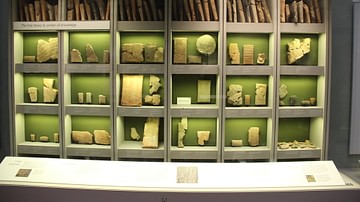
Definition
Library of Ashurbanipal
The Library of Ashurbanipal (7th century BCE) is the oldest known systematically organized library in the world, established in Nineveh by the Neo-Assyrian king Ashurbanipal (r. 668-627 BCE) to preserve the history and culture of Mesopotamia...

Definition
Homer
Homer (c. 750 BCE) is perhaps the greatest of all epic poets and his legendary status was well established by the time of Classical Athens. He composed (not wrote, since the poems were created and transmitted orally, they were not written...
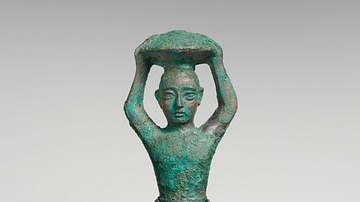
Article
A Praise Poem of Shulgi
A Praise Poem of Shulgi (c. 2020-2000 BCE) is an ancient Sumerian document celebrating the famous run of 200 miles (321.8 km) in one day made by the king Shulgi of Ur (r. 2029-1982 BCE) to distinguish his reign by officiating at the religious...
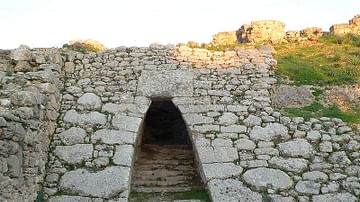
Definition
Ugarit
Ugarit was an important sea port city in the Northern Levant. Though never a world power, Ugarit was a key economic center in the Ancient Near East, serving as a major trade center between Egypt and the major powers of Bronze Age Asia Minor...
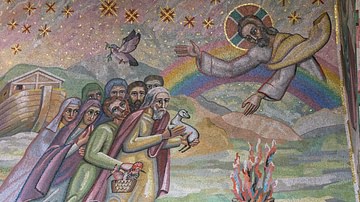
Definition
Noah
Noah is considered one of the patriarchs in the Jewish Scriptures or one of the founding fathers of what became the religion of Judaism. His story begins in Genesis 6 and consists of three elements: the evil of the earth; the flood narrative...

Video
Mesopotamia: The Development of Written Language
In animation, this video describes the development of cuneiform script, the importance of documenting, the occupation of scribes and a brief description of a few myths (including the Epic of Gilgamesh), all pertinent to Sumerian culture in...

Article
The Tale of the Shipwrecked Sailor: An Egyptian Epic
The Tale of The Ship-Wrecked Sailor is a text dated to the Middle Kingdom of Egypt (2040-1782 BCE). It is a story of adventure whose purpose, besides entertainment, would have been to impress upon an audience how all one needed to be content...

Definition
Mesopotamian Religion
Mesopotamian religion was central to the people's lives. Humans were created as co-laborers with their gods to hold off the forces of chaos and to keep the world running smoothly. As in ancient Egypt, the gods were honored daily for providing...
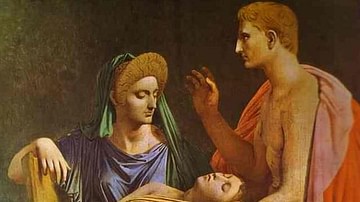
Definition
The Aeneid
The Aeneid, written by the Roman poet Virgil (70-19 BCE), is a twelve-book-long epic poem that describes the early mythology of the founding of Rome. The eponymous hero Aeneas, a Trojan prince and son of Venus, faces trials and tribulations...
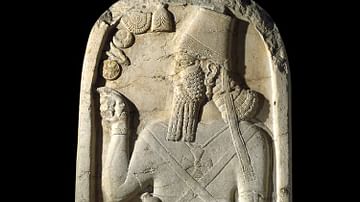
Definition
Anu
Anu (also known as An) is an early Mesopotamian sky god who was later viewed as the Father of the Gods and ruler of the heavens, a position which then passed to his son Enlil. He is the son of the couple Anshar and Kishar (heaven and earth...